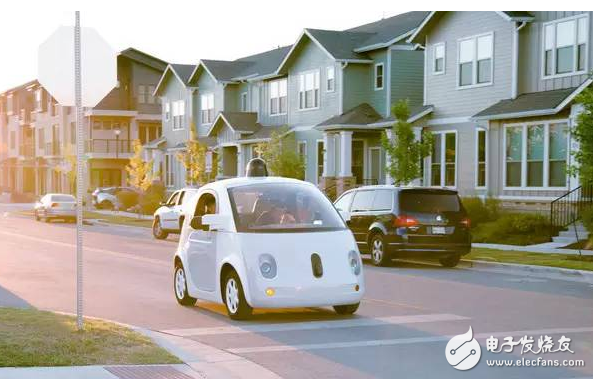Although the history of self-driving cars can be traced back decades, Carnegie Mellon University's navigation laboratory developed autonomous vehicles in the 1980s. In 1994, Mercedes conducted a 1000-kilometer test on self-driving cars. And car manufacturers have shot, hoping to take a share in the autonomous car market.
Last week, Alibaba and SAIC announced an Internet car that uses autonomous driving technology. Alibaba Chief Technology Officer Wang Jian said, "The two sides will jointly develop autonomous driving technology." On the same day, LG announced that it will jointly develop a new car networking platform with Volkswagen, and the car will be able to communicate with various devices - including the home security system. Lighting system. But this can also be seen as one of the enabling technologies for autonomous vehicles – autonomous vehicles need to communicate with the outside world.

This is another major trend in the automotive industry in recent years: the relationship between traditional car manufacturers and technology companies. This year, cooperation and plans for autonomous vehicles involve some of the industry giants. BMW announced a partnership with Intel and Mobileye to produce autonomous vehicles in 2021; when investing $500 million in taxi applications, GM announced plans to develop autonomous vehicles; Toyota set up a 50-person research lab to explore automation Driving a car development approach and strategically investing in Uber, which has already tested its own self-driving cars on the road; Baidu established a self-driving car division in Silicon Valley after China and Baoji have partnered with several autonomous vehicles.
For many years, Google has been developing autonomous driving technology and is a leader in this field. Although Google has developed prototypes for autonomous vehicles, it relies on cooperation with automakers in this area to introduce autonomous driving technology for the Toyota Prius, Audi TT and Lexus RX450h. Earlier this year, Google and Fiat Chrysler reached a cooperation agreement to test "tens of" self-driving cars on the road. At the conference to announce the cooperation plan, Fiat Chrysler CEO Sergio Marchionne said that Google and other technology companies "are not my enemies, they will help us shape the future of the automotive industry." Last year, Chris Urmson, head of Google's self-driving car program, said, "It's really difficult to make a car. This is an advantage for car manufacturers. Therefore, I think we should find a partner."
As technology companies and automakers become "generalists" in autonomous vehicles, the cooperation and alliances between the two sides may be just a short-term solution. Traditionally, Google has partnered with mobile phone manufacturers to produce its Nexus-branded phones, but media reports say Google will soon produce its own phones. This makes sense. Apple has used this strategy to achieve great success in the mobile phone and computer fields - software and hardware produced by the same company can provide users with a smooth experience.
Google has said in the past that it does not intend to sell its own brand cars, and the prototypes produced are only used for testing purposes. When talking about these prototypes at a meeting of the California Public Utilities Commission last year, Sarah Hunter, head of Google X policy, said, "We have produced hundreds of prototypes to make our team Learn how to produce autonomous cars."
Google has its own car production division, Google Auto LLC, and Google’s California-registered Lexus car is being used by the company. There is no doubt that Google hopes to eventually fully control its autonomous car program, which means producing and selling its own brand cars. Of course, this does not mean that Google will exclude the cooperation with third-party car manufacturers to install the latest auto-driving technology for the latter models. After all, consumers like to have multiple choices.
There is no doubt that cooperation between automakers and technology companies is a stopgap measure, but they also reveal future trends. In addition to Toyota's establishment of an automated driving technology research laboratory in the United States, GM also spent more than $1 billion to acquire the auto-driving car startup Cruise AutomaTIon. Toyota digs the head of the Google robot business to lead the smart business. Land Rover has formed a company called InMoTIon, which is dedicated to developing technology and bringing the entire company into the Internet age. There is also Tesla of Elon Musk, which has shown that car manufacturers can also become technology companies.
Future automakers and technology companies will become increasingly integrated: technology companies will become automakers, and automakers will also have to become technology companies.
Laser Cutting Acrylic Letter,Painted Laser-Cut Acrylic Signs,Acrylic Letter Painting Services,Paint Finishes For Acrylic Letters
Wuxi Motian Signage Co., Ltd , https://www.makesignage.com
